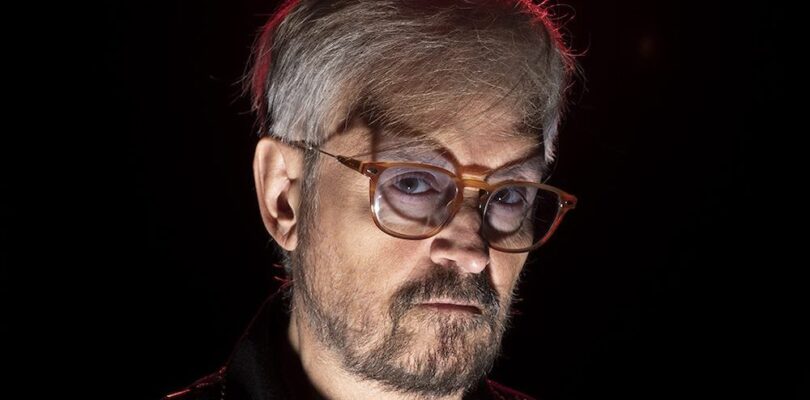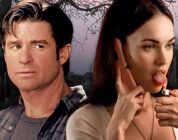For horror fans, Claudio Simonetti is a household name. First a founding member of rock group Goblin, whose work is synonymous with filmmaker Dario Argento’s genre standard-bearers “Deep Red” and “Suspiria,” a producer and pop artist in his native Italy, and later a lead composer on Argento’s “Tenebre,” Lamberto Bava’s “Demons” and more, Simonetti and his collaborators turned iconoclastic takes on scoring — utilizing the sounds of prog rock and disco — into iconic pieces of film music.
After (by his count) 70 films, he’s earned a few victory laps, and he’s taking one this year: in September, he began a nationwide tour with Bava’s “Demons” in which he and the re-formed Goblin (now named Claudio Simonetti’s Goblin) perform his score for the film live to picture, followed at each screening by a set of classic pieces from his and Goblin’s vast body of work. Ahead of his scheduled appearance in Glendale, Calif. on Oct. 28, Simonetti spoke to Variety about his serpentine path to becoming one of the most famous and prolific composers in horror history.
The score to “Demons” was basically you with a drum machine and synthesizers. What has been the process of expanding the sound to accommodate a band performing it live?
“Demons” wasn’t very difficult to adapt — we keep more or less the same sound, but with real instruments. What was difficult was to do was to prepare the entire soundtrack to play live, because there is a lot of music in the film, including songs like Motley Crue’s “Save Our Souls.” But the only two songs I [kept for the live performances] was Billy Idol’s “White Wedding” and Go West’s “We Close Our Eyes.”
Was “Demons” special to you as a solo effort after working in collaboration with the other members of Goblin?
“Demons” was a challenge for me because it was the first work just by myself with no band. I always was a big fan of synthesizers since the early seventies, and at the end of the seventies when we separated as a band, I started doing a lot of dance music. So even in “Tenebre,” I used a vocoder and a drum machine. I did that score with two members of Goblin, but without the drummer. So yes, I loved “Demons” — it’s one of my favorite soundtracks and films.
Your earliest incarnation as a part of Goblin was as the band Oliver. What emboldened you to move to London and pursue a career outside of Italy?
I started the band in ’72 with Massimo Morante, the guitar player, who I’m sorry to say passed away last year. I was doing military service, but I composed the entire “Cherry Five” album with him, and then we called bass player Fabio Pignatelli, and then the drummer, Carlo Bordini. We decided to go with these demos to London, but it was very difficult because we were an Italian band. It’s like if an Englishman came to Italy to make pizza! But thanks to my father [Enrico Simonetti], who was a very popular artist in Italy, he presented us to Cinevox Records, who are big publishers of music from films. So Carlo Bixio, the director of the label said “let’s do the album,” and we started to record the album on the studio. But during this period, Dario Argento came to Carlo and said, “I have this new film ‘Deep Red,’ but I would like a famous rock band to do the music… why we don’t call Pink Floyd, Genesis, or Deep Purple?” And the producer [recognized] it would be very hard to contact these bands — and very expensive. So he said to Dario, “I’m producing an Italian band, maybe you would like them? They play gothic rock and prog.” So Dario came to the studio where we were recording, and he loved our music. It was an incredible coincidence, and we were very lucky.
There are conflicting reports about how much time you were given for the score for “Deep Red.” How long were you given and what was the track that made you confident that you could compose the whole thing?
We didn’t have much time to write the soundtrack because the film was released a month and a half after we recorded it. The original composer of “Deep Red” was Giorgio Gaslini, a very good musician, but Gaslini left the film — he had a problem with Dario — so Dario came to the studio and said, “you have to finish the film, but we are missing the main themes.” We had never composed anything for films, and I was the oldest [member of the band,] 22 years old. So we went to my house and I had a little studio in the basement and recorded the demo of “Deep Red.” The next day, Dario listened to it and said it’s good. I never expected it to be a big success. But also when we were recording the “Deep Red” soundtrack, we also were recording the Oliver studio album, and that’s why the record label decided to change the name of our band to separate the projects. So they changed the name of Oliver to Cherry Five — I still don’t know why — and they chose the name of Goblin, which is a beautiful name. And after the film was released, in 10 months we sold one million copies of the album.
I understand that you discarded your original score for “Suspiria” after you watched the movie and came up with something totally different. How did you formalize a process of composing for film?
Now when I do soundtracks, I see the film and I write music for every scene with a computer. In the seventies, we preferred to record separate tracks — we did “Deep Red,” “Mad Puppet,” “Death Dies” like an album, and afterward Dario and the editor would put the music where they needed. “Suspiria” was different, because when we started “Deep Red,” the film was edited and completely done. On “Suspiria,” Dario contacted us before he shot the film and he asked us to write something. We did, but I don’t like to read scripts — it’s like if you read a book and then you go to see the movie of the book — it’s different in your mind. So we wrote music that Dario used on set to inspire the actors, but when we saw the finished film, the music was not good. So we started again from the beginning with music that’s completely different from what we wrote before. The strange thing is that all of the tapes of the demos disappeared. Maybe it was the witches — they didn’t like it so they destroyed it. But we had almost two months in studio doing experimental music where we used instruments like the bouzouki, the Indian tabla, and I used a Moog synthesizer for the first time. I think that “Suspiria” is the most important soundtrack we made. “Suspiria” is actually is the real Goblin style, because in “Deep Red” we play like a prog rock band.
How did it set a template for your scores after that?
I think that every film we made as the Goblin, and also I made by myself, are completely different. If you listen to the scores for “Deep Red,” “Suspiria” and “Dawn of the Dead,” you’d think they’re by three different bands because the sound of each one is completely different. “Dawn of the Dead,” we had a lot of fun recording because it’s the greatest zombie movie in history, for me, and we played rock, bossa nova and horror themes. George Romero used library music [for his cut], but because Dario Argento was the distributor of the film in Europe, he cut 15 or 20 minutes out of the film and changed the music. When it was redistributed in the States with the new version, it was a big successful soundtrack and movie. But we never met George Romero! I only met Romero one year before he passed away. But I think he appreciated a lot of our music — even if he never called us for anything else.
Was it an easy transition to start producing disco after launching your career as part of a prog rock band making film scores?
We finished with Goblin in 1978, and a new era was arriving with disco — “Saturday Night Fever” and “Flashdance” — and prog rock was at the end of its period. I was born in Brazil and lived there for 11 years, so I had that kind of music in the blood, so I said, why not try to do disco in Italy? So my first album was under the name Easy Going, and the band was typical — three dancers, like the Village People or something like that. It was my favorite period of my life, the eighties, because I did [disco] for maybe four or five years.
Did your work producing disco influence the decision to make the main theme to “Tenebre” so disco heavy?
Dario said “I want you guys to do my film,” but we couldn’t the use name Goblin because it was used by the bass player, Fabio Pignatelli, with different guys who signed a contract with the label. So we used our three names, Simonetti, Morante and Pignatelli, to write the music without our drummer. And it was 1982, so I said, why we don’t do something with rock and disco using synthesizers and drum machines and a vocoder? We started to record this kind of music, and it was a great decision because I love the “Tenebre” soundtrack, mixing rock and dance.
Whether the movie is great or not, what have you figured out over the years that makes a score resonate with audiences and endure?
You’d have to ask to the audience, because I don’t know. I just write the music. Of course, it’s also technical work, so after I’ve made also almost 70 films, I know more or less now what kind of music would be good for the film. But I don’t know why some songs are powerful. Maybe it’s thanks to the film — “Suspiria,” “Deep Red” and “Tenebre” are very good films, and the impact with the images and the music is strong. But I also have many films that I wrote music I love for, but they were not successful films — why, I don’t know. Sometimes you see bad films with good music, and you don’t listen for it. But I’ve seen many good films with bad music. I always say, why did you use this music? It would be better with better music!
You’ve worked with all these horror luminaries. Which of these partnerships do feel were the most fruitful?
My favorite director is Dario Argento, because Dario is involved in the music. But I worked with many other directors that sometimes I never met — I didn’t have a contact with Umberto Lenzi or Lucio Fulci. But Ruggero Deodato was one of my favorite directors, as a person, because he was really funny. I was really upset when he passed away in May of this year; I did five films with Ruggero.
Is there a score that you would love most to do live that you have not had the opportunity to do? Is there one that would be the most difficult?
It’s “Demons.” “Deep Red” was easy because we played and used the same instruments as a classic quartet, and the same with “Suspiria.” “Demons” was electronic music and I had to readapt it for the band. And also compared to other soundtracks we play live, we do a lot of improvisation. But we like it because many scenes are impossible to recreate with the original soundtrack, so we extract the original one and do something new.





